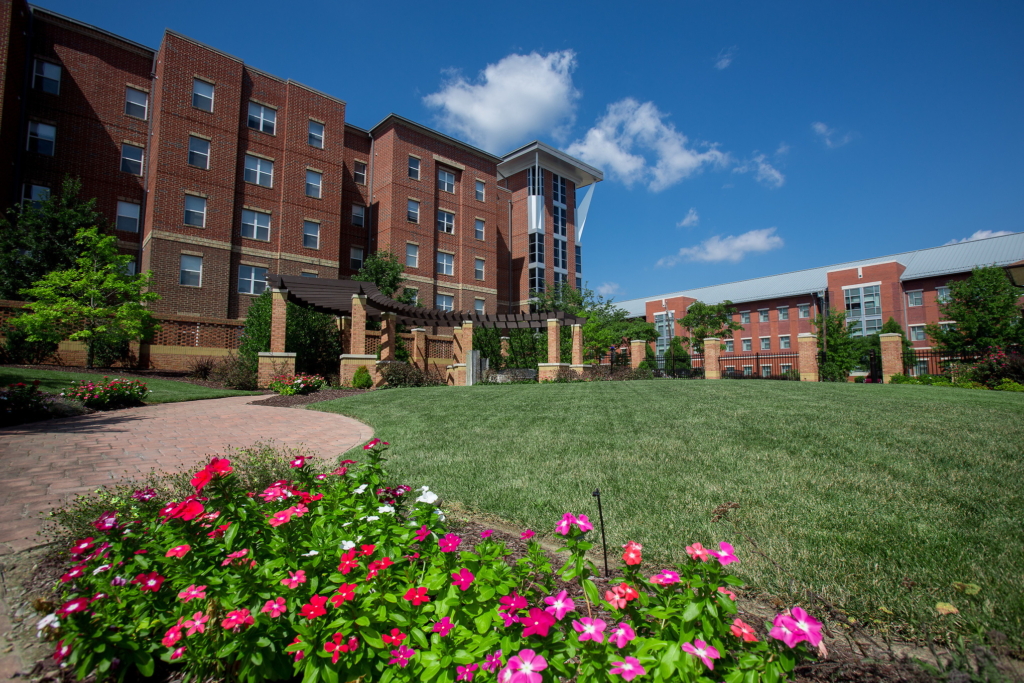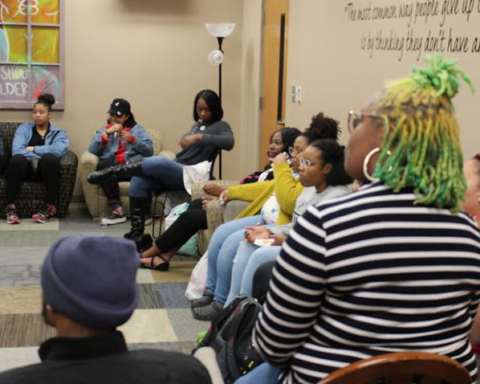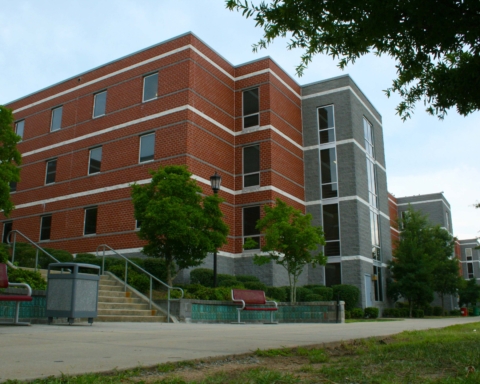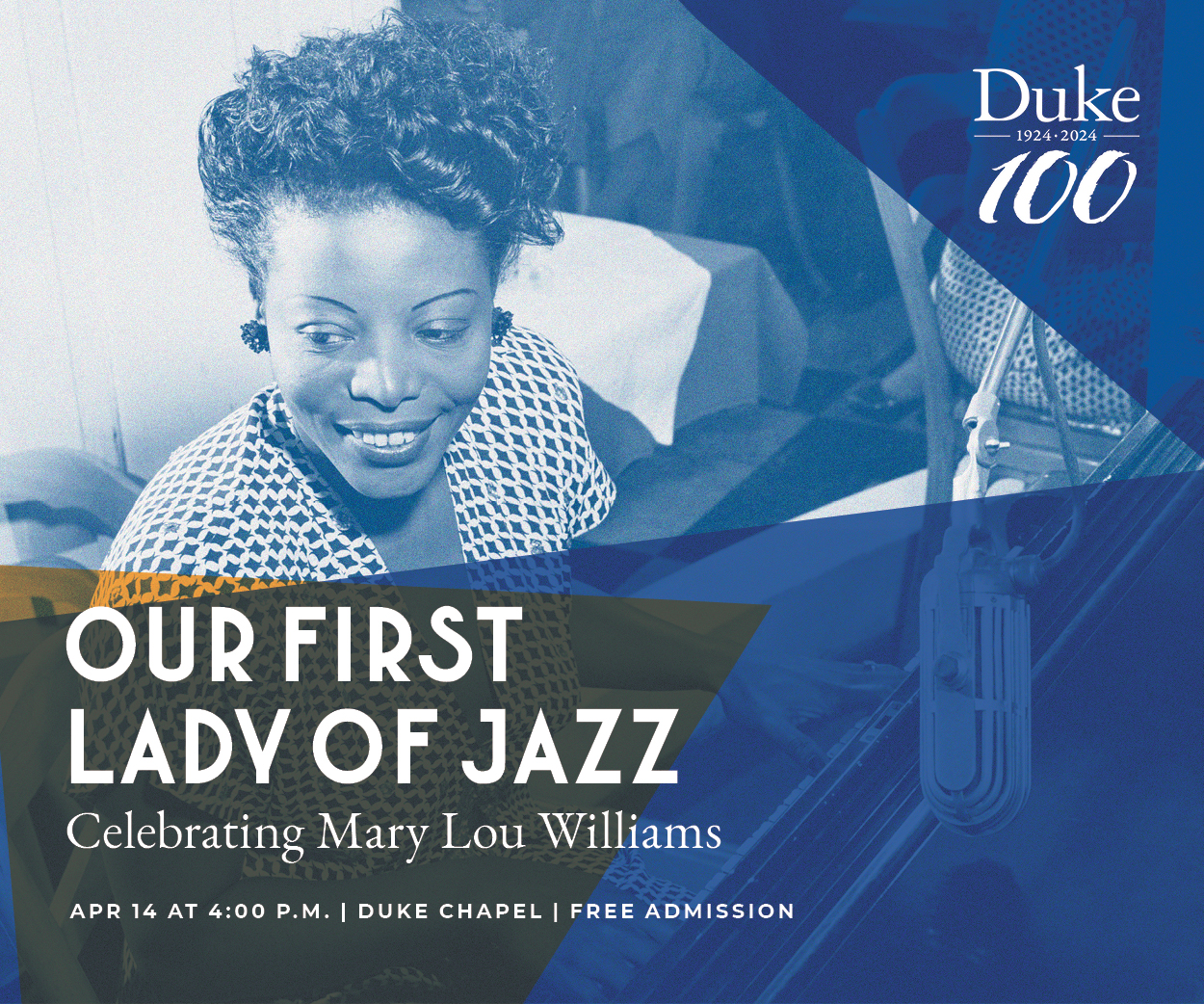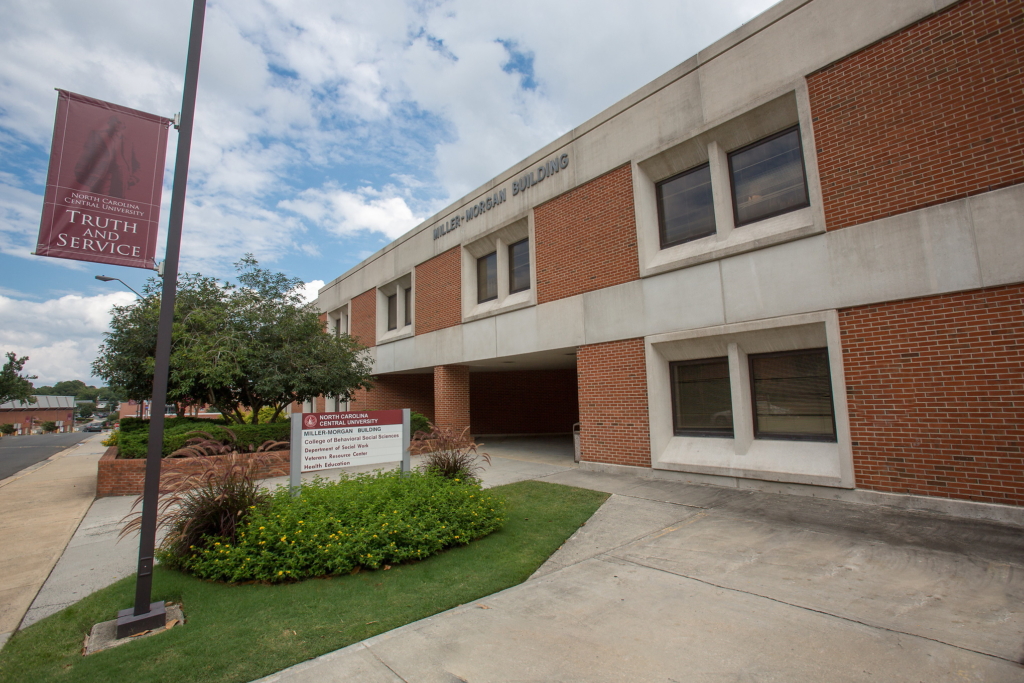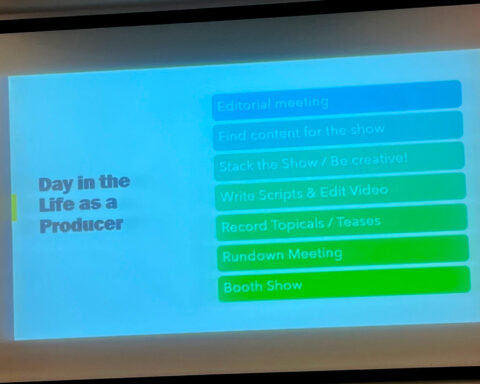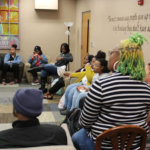Over the past few decades, N.C. Central University has worked to make campus housing more available to students. This includes the creation of new apartments and residential halls that serve different classes of students. But challenges remain.
Citing a common complaint, junior Malik Ford said he’s had trouble applying for housing each year.
“NCCU’s website either crashes immediately or doesn’t open at all every year when I apply,” Ford said. “All of the students trying to find places to stay at once prevents the system from working the way it should.”
Complaints about the website prompted the university to try a new system for the upcoming school year. Ford said he’s cautiously optimistic.
“You can trust NCCU to fix the issues they’re having,” he said. “It’s more a matter of how long it will take.”
Maya Chapman, who serves as the area coordinator for both Eagle Landing and Ruffin Residence Halls, noted that every year brings its own set of challenges.
“There are several factors that go into providing housing to students,” she said. “Everything from the availability of on-campus housing to incoming freshman must be taken into account.”
As promised in NCCU’s Policies and Regulations, all incoming first-year freshman are to be given guaranteed housing at a residence hall on campus. Naturally, this calls for other students who were previously housed to be misplaced, creating a scarcity of housing for them. While some dormitories such as Chidley and Eagle Landing are only available to upperclassmen, the majority of the residence halls are either open to freshman or are simply for freshman only.
Chapman said that Residential Life is “making other changes to how well student’s housing needs are accommodated” for the upcoming academic years.
Jaylan Weaver is another example of a student who has faced several problems with not only finding housing, but also maintaining that housing throughout the school year.
Weaver opted to attend summer classes in 2018 and wanted to live on campus. He was housed in the George Street apartments with three other students. But overcrowding forced Weaver and his roommates to leave their apartment to make room for other students.
“Being kicked out of George Street just to be moved into a hotel off-campus wouldn’t have been so bad if I was given more notice,” Weaver said.
He was eventually able to find housing in Ruffin Residence Hall, but only after residing in the DoubleTree Suites by Hilton hotel for several months.
Weaver was still able to attend classes and other school functions regularly partly in thanks to shuttling services offered by the university. The shuttle to travels from different locations on NCCU’s campus and to the local DoubleTree, however, the time frames in which it does so are limited to every hour except between 12 and 3 p.m. Students are therefore required to set their schedules with these parameters, leaving the possibility for further complications.
NCCU plans to build three new residence halls by 2021 as a part of a $123 million deal involving the creation of a new student union and business building.
These residence halls are estimated to be able to house up to 1,270 students and allow Residential life to guarantee housing for not only freshman, but sophomores as well.

